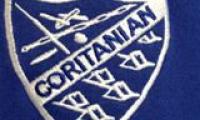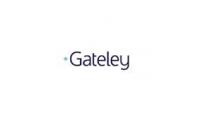Charities Welcome Budget Announcement of Extra Money to Buy Public Access Defibrillators
Posted: Thu, 02 Apr 2015
Two charities, the Joe Humphries Memorial Trust (JHMT) and the Leicestershire Heartsafe Programme have welcomed this announcement, as survival rates after out-of-hospital cardiac arrest in the UK are far below those achieved elsewhere in Europe and in the United States. Currently, only about 10% of those affected are successfully resuscitated and survive to leave hospital alive. The two proven measures that are required to maximise the chance of survival are immediate bystander cardiopulmonary resuscitation (CPR) and early access to external defibrillation. Each minute of delay in re-starting the circulation worsens the chance of survival by up to 10%. The chance of survival can be increased two- to three-fold if CPR is started immediately and continued until a defibrillator is available.
The increased availability of automatic external defibrillators (AEDs) that will be achieved by this new funding initiative will improve the outlook for victims of out-of-hospital cardiac arrest. Although the majority of cases occur in older adults with coronary artery disease, sudden cardiac arrest can also occur in seemingly healthy people and it is estimated that over 600 deaths per year occur in young people less than 35 years of age.
Dr William Toff, Senior Lecturer in Cardiology at the University of Leicester and Co-Director of the Leicestershire Heartsafe Schools Programme said: "We welcome this additional funding to increase the availability of AEDs in schools and other public places. It is, however, essential that as well as improving awareness and availability of AEDs, more people are taught how to recognize cardiac arrest and perform CPR. We believe that these skills should be taught in all secondary schools and that is the aim of the Heartsafe Programme that we are delivering in Leicestershire in collaboration with the JHMT."
To date, over 6,000 Year 10 pupils in Leicester and Leicestershire have been given hands-on training in CPR and over 50 schools have been provided with an AED. Dr Toff said: "The provision of AEDs to schools not only provides a resource for dealing with a cardiac arrest should it occur on site but by making students and staff aware of the importance of AEDs and familiar with their use, it will bring about a change of culture and an expectation that AEDs should be more widely available in public places. This should ultimately lead to improved survival from cardiac arrest occurring in the community."
Dr Mike Ferguson (JHMT)and Dr Doug Skehan (Heartsafe) added "we are proud of the work we have led in schools and particularly the response of our volunteer trainers who deliver training for the year 10 pupils to give CPR skills and AED awareness. Direct feedback from pupils is almost all positive so we do think the education approach is valid and will transfer to a better public response to victims of cardiac arrest".
JHMT and Heartsafe would like to see more areas within the United Kingdom follow the example set within Leicestershire.


































































